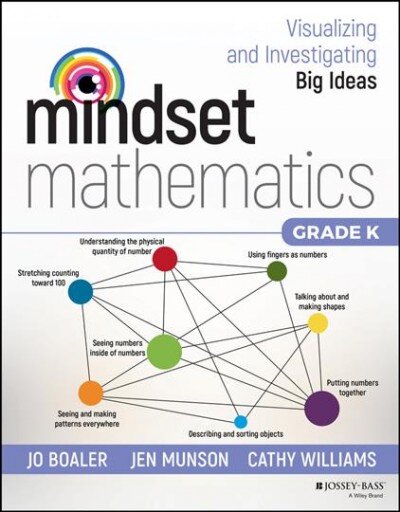"Each grade level's materials will be structured as a single volume for teachers. Each volume will include a collection of mathematical tasks focused on the big mathematical ideas in the grade level that create space for students to engage in (1) visual mathematics, (2) play, and (3) investigation. For each big idea the text will unpack for teachers the big ideas and how to look for student thinking around these ideas to make instructional decisions. It will address the questions: What is the big idea and why is it important? How do students learn this big idea? What should I look for in student thinking and strategies? Further, each activity or task will be accompanied by ideas for how to launch and how to facilitate discussion after the activity. Activities in the three areas -- visual math, play, and investigation -- will be provided as reproducibles"--
Engage students in mathematics using growth mindset techniques The most challenging parts of teaching mathematics are engaging students and helping them understand the connections between mathematics concepts. In this volume, you'll find a collection of low floor, high ceiling tasks that will help you do just that, by looking at the big ideas at the kindergarten-grade level through visualization, play, and investigation. During their work with tens of thousands of teachers, authors Jo Boaler, Jen Munson, and Cathy Williams heard the same message—that they want to incorporate more brain science into their math instruction, but they need guidance in the techniques that work best to get across the concepts they needed to teach. So the authors designed Mindset Mathematics around the principle of active student engagement, with tasks that reflect the latest brain science on learning. Open, creative, and visual math tasks have been shown to improve student test scores, and more importantly change their relationship with mathematics and start believing in their own potential. The tasks in Mindset Mathematics reflect the lessons from brain science that: There is no such thing as a math person - anyone can learn mathematics to high levels. Mistakes, struggle and challenge are the most important times for brain growth. Speed is unimportant in mathematics. Mathematics is a visual and beautiful subject, and our brains want to think visually about mathematics. With engaging questions, open-ended tasks, and four-color visuals that will help kids get excited about mathematics, Mindset Mathematics is organized around nine big ideas which emphasize the connections within the Common Core State Standards (CCSS) and can be used with any current curriculum.
